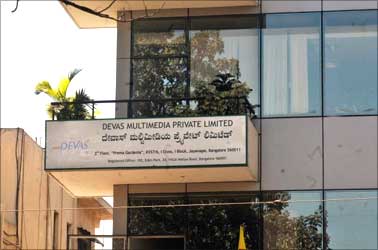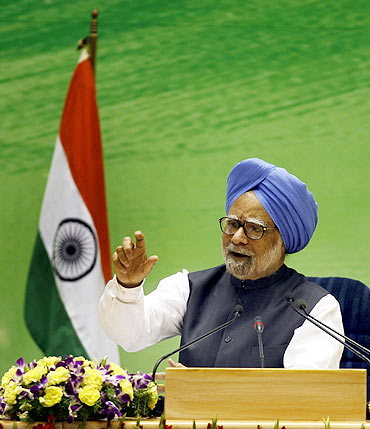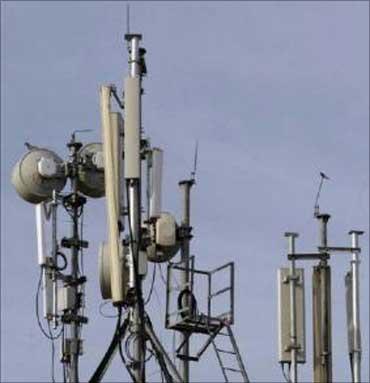 | « Back to article | Print this article |
Antrix deal, scams, inflation: PM has bold retorts
Seeking to clear the air on the controversy over allocation of S-Band spectrum, Prime Minister Manmohan Singh on Thursday said the deal to allocate transponder frequency on two satellites to the Indian arm of a United Stats firm never came to his office for approval.
"There is no question of Prime Minister's Office being asked to approve the deal. It never came to that level," Singh said.
The deal is alleged to have caused a loss of over Rs 2 lakh crore (Rs 2 trillion) to the government.
Click NEXT to read further. . .
Antrix deal, scams, inflation: PM has bold retorts
He was intervening during Question Hour in Rajya Sabha when Opposition members sought to know who in the PMO was responsible for approving the deal between Devas Multimedia Pvt Ltd (the Indian arm of Forge Advisors of US) and Antrix Corp, the commercial arm of ISRO.
Antrix, he said, is a commercial arm of ISRO and in normal course its deal with Devas does not go to the government for approval.
Click NEXT to read further. . .
Antrix deal, scams, inflation: PM has bold retorts
Only the launch of satellite "did come to the Cabinet," he said. But the Devas-Antrix deal "was not mentioned in the Cabinet note."
Minister of State in the Prime Minister's Office V Narayanasamy said Antrix Corp Ltd, set up by Department of Space in 1992, had signed an agreement with Devas in January 2005 for leasing part of the space segment capacity in S-band on two geostationary satellites.
The agreement details the terms and conditions under which part of the transponder capacity of these satellites will be made available to Devas for 12 years.
Click NEXT to read further. . .
Antrix deal, scams, inflation: PM has bold retorts
This was as per the Satellite Communications Policy Framework for India approved by Cabinet in June 1997 which authorised INSAT capacity to be leased to non-governmental parties.
The norms, guidelines and procedures for implementation of this policy was approved by Cabinet in January 2000.
"These provided for entering into bilateral agreements with other agencies for marketing this capacity," he said.
Click NEXT to read further. . .
Antrix deal, scams, inflation: PM has bold retorts
He said in order to catalyse Digital Multimedia Services in India for which ground segment technology was evolving then in a very few developed countries, Antrix signed a MoU with Forge Advisors of USA in July 2003.
Subsequently, Forge promoted an Indian company called Devas with whom the Antrix entered into the agreement in January 2005 for lease of S-band transponder capacity in two satellites.
He said the allocation of S-band spectrum was pointed out in December 2009.
The Space Commission annulled the agreement when it was felt that S-Band was required for defence, paramilitary forces and societal purposes. Subsequently, the Cabinet Committee on Security too annulled the deal.
Click NEXT to read further. . .
Antrix deal, scams, inflation: PM has bold retorts
"If any wrong (has been) done, the prime minister will take action," Narayanasamy said. "When it came to knowledge of the government, immediate action was taken."
He said a high powered committee is looking into any irregularity in allocation of S-Band and action will be taken against the guilty.
As per the agreement, Devas was required to pay to Antrix upfront capacity reservation fee of $40 million and lease charges of $18 million per year for S-band transponders.
Opposition members were not satisfied by the minister's response and continued to raise the issue of scarce spectrum being allocated to private party at throw away price.
Chairman Hamid Ansari asked members to allow Question Hour to proceed and said if they wanted a discussion on the subject they should give notice.






